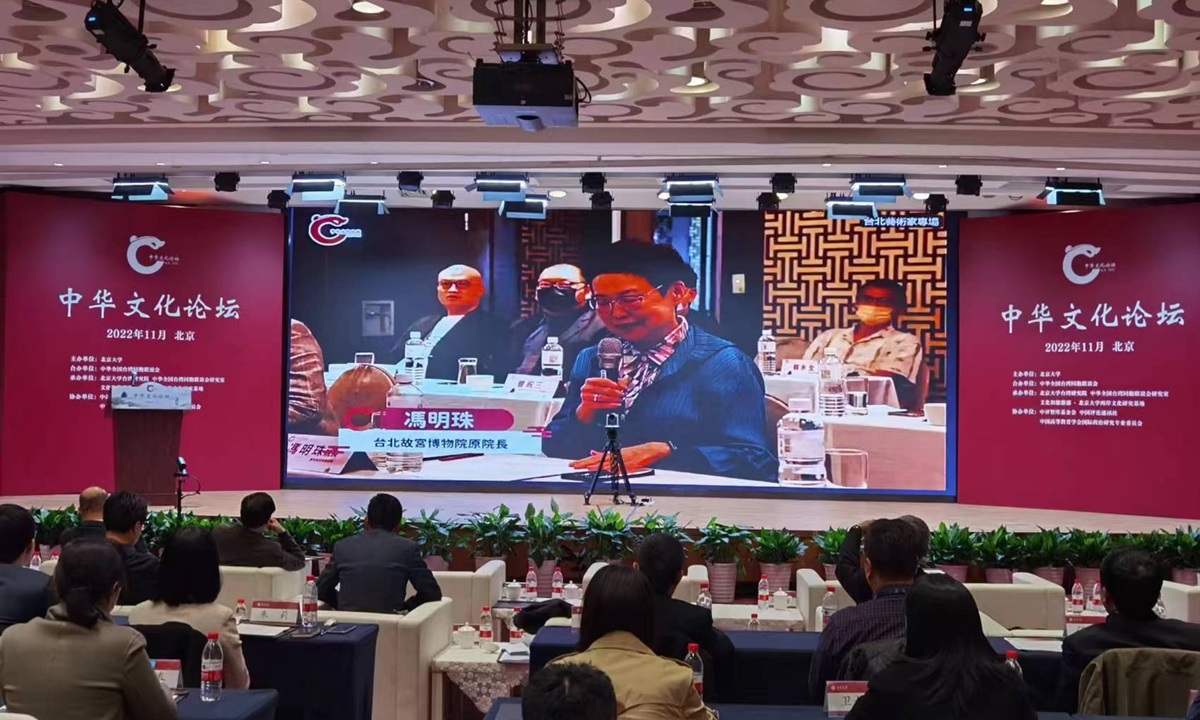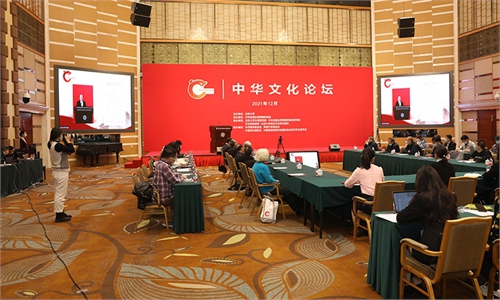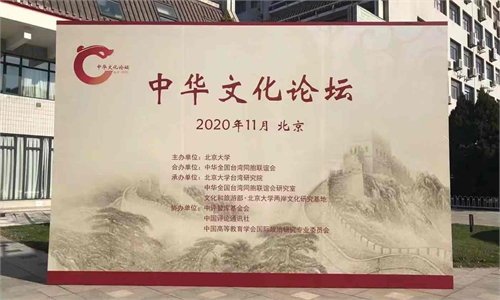'De-Sinicization' against historical trend, 'cultural independence' doomed to failure, expert stresses at cross-Taiwan Straits forum
‘De-Sinicization’ against historical trend, ‘cultural independence’ doomed to failure, expert stresses at cross-Taiwan Straits forum

The 8th Forum on Chinese Culture kicks off on Sunday at Peking University in Beijing. Photo: courtesy of Peking University
Compatriots from the island of Taiwan are members of the Chinese nation, whereas "de-Sinicization" goes against the historical trend, and "cultural independence" is doomed to failure, an expert stressed at an annual forum which aims at promoting cross-Straits exchanges on Sunday.
Ji Bin, deputy head of the All-China Federation of Taiwan Compatriots, made the remarks on behalf of Huang Zhixian, head of the federation, when he extended welcome and appreciation to compatriots on both sides of the Taiwan Straits at the forum.
Themed "construction of Chinese culture and the new form of human civilization," the 8th Forum on Chinese Culture was held on Sunday at Peking University in Beijing, with over 150 scholars and experts from across the Taiwan Straits participating online and offline to carry out extensive and in-depth discussions and exchanges, and jointly carry forward the fine traditional Chinese culture.
Ji said that the excellent traditional Chinese culture has provided a strong spiritual support for the Chinese nation to overcome hardship and thrive the difficult times. During the Chinese nation's 5,000-year-course of development, the pursuit of reunification and the opposition to secession have always been the mainstream values of the whole nation, and have been deeply integrated into the spirits and blood of the entire Chinese nation.
The motherland must and will be reunified, which is determined by the history and culture of the Chinese nation, and also determined by the time and trend of the great rejuvenation of the Chinese nation, Ji said.
Taiwan Affairs Office of the State Council addressed the forum in a letter, saying that the annual forum has always been encouraging compatriots from both sides of the Taiwan Straits to carry forward the fine Chinese culture as its purpose since it was initiated.
With the joint efforts of people with insight on both sides of the Straits, the forum has contributed ideas on deepening cross-Straits cultural exchanges and cooperation, it's also built consensus, playing a positive role in deepening the integrated development of the two sides of the Straits and enhancing the connection between the hearts of the compatriots from both sides.
Liu Chao-Shiuan, former president of the General Association of Chinese Culture, addressed the forum. He said Chinese culture has been playing an increasingly important role in establishing a new set of values, among which the people-oriented thoughts should be particularly emphasized.
According to Liu, it is believed that democracy is a basic value in the West. However, Liu said democracy is not the basic value whereas the people orientation is, which means that people's welfare should be basically satisfied.
The forum hosted by Peking University and co-sponsored by All-China Federation of Taiwan Compatriots, is organized by the Taiwan Research Institute of Peking University.
According to Professor Li Yihu, head of the forum organizing committee and dean of the Taiwan Research Institute of Peking University, the forum is an important cross-Straits cultural exchange event after the 20th National Congress of the Communist Party of China. The participants conducted very meaningful full discussions on three topics including the "new form of human civilization and the excellent traditional Chinese culture," "origin of Chinese civilization and both sides of the Straits" and "cross-Straits art exchange."
Due to the epidemic, the forum adopts an online and offline approach, with the main venue at Peking University and sub-venues in Taipei and Kaohsiung in Taiwan island. Experts and scholars from both sides of the Taiwan Straits participated in various forms such as video link, participation in separate sessions, video recording in advance, and submission of papers.
Since 2015, the forum has been held seven times at Peking University, attracting many experts, scholars, cultural personages and political leaders from the mainland, Taiwan, Hong Kong and Macao.
Global Times


